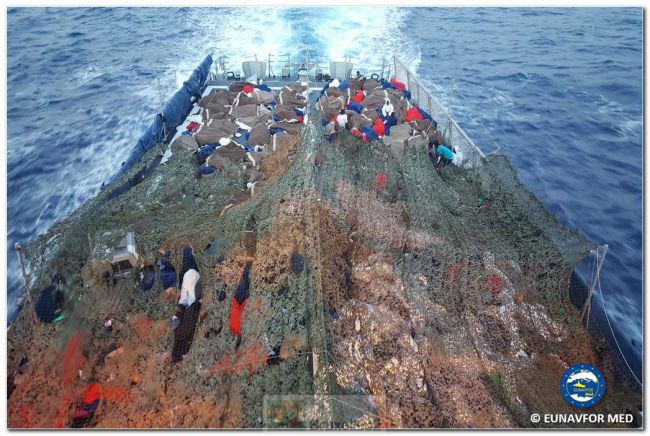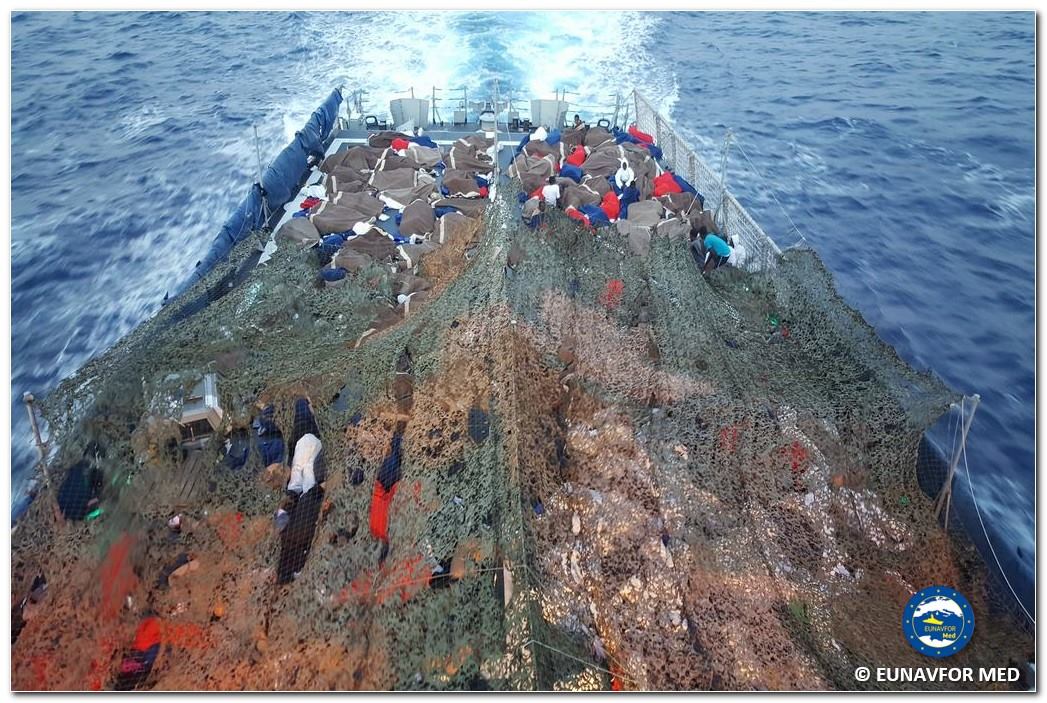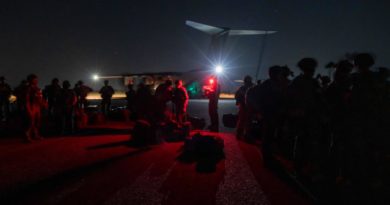Operation Sophia becomes a “real” mission of presence at sea

(BRUSSELS2) This was an insistent request from the French and the British in particular. The European ships present in the Mediterranean within the framework of Operation Sophia (EUNAVFOR Med) must not only carry out rescue at sea, but have a more robust attitude, in particular against traffickers of human beings, but also against trafficking in all genres.
Two new tasks
The '28' Foreign Ministers meeting in Luxembourg will adopt, this Monday (June 20), a decision which marks a turning point in the operation to add two new tasks to European ships sailing off the coast of Libya: the control of the arms embargo and the training of the Libyan Coast Guard. A request that hardly enchanted the Germans, forced to go back to their Bundestag and whose role of “nice” father rescuer suited them like a glove (1).
A French ship?
Paris will now have to walk the talk. So far the French contribution has been more than limited (2). France only very occasionally provided this ship, and just as occasionally a maritime patrol aircraft (Falcon). According to our information, the provision of a permanent vessel for arms control is " in the study ". A diplomat from a Member State remarked to B2: it is up to those who defend an increase in tasks to provide ". The British have already promised an extra effort with an additional ship. As a reminder, the Germans permanently provided Operation Sophia with: 2 ships, the British 1 ship, the Italians 1 or 2 ships and helicopters, the Luxembourgers 1 plane. The Spaniards, Portuguese and Slovenians also contributed over a more or less long period.
Going to another stage
It can be noted that the operation thus goes from a "simple" surveillance and rescue operation to a more "elaborate" mission, with the imposition of an arms embargo, under the cover of Chapter VII of the Charter of the United Nations. The last time the Europeans carried out this type of operation ... was under cover of the WEU (Western European Union) off Yugoslavia in 1992-1993 and in concert with NATO. In other words... to another century... During the last intervention in Libya, in 2011, it was the Atlantic Alliance that took charge of this control at sea. European level, for a division of tasks between the air embargo - ensured by NATO - and the maritime embargo - which would have been ensured by the European Union. This option had fizzled out. NATO then logically took over these two tasks.
A certain British voluntarism?
We can also note that the United Kingdom accepted, without firing a shot, this new task carried out under the flag of the European Union. Ordinarily, all British art consists in blocking this type of operation or delaying its implementation. Here, apparently, nothing happened. His Gracious Majesty's diplomats notably worked at the UN (with the French) to draft and carry the Security Council resolution (n°2292) authorizing this task. And, very quickly, the Minister of Defense, Michael Fallon, announced an additional contribution (or at least a continued commitment to the operation).
The interest of having two "useful" organizations
Placing this type of (control) operation under the direction of the European Union is not, however, due to a “conversion” of the British, but rather to a certain non-ideological pragmatism. Only the EU was in a position to obtain the unanimous consent of the Fifteen of the Security Council. Using the Atlantic Alliance would have been the guarantee of a certain failure. The Russians reminded us of this in New York during the discussion. The advantage of having two organisations, capable of carrying out the same type of task, is thus demonstrated. There is no duplication of efforts between the "two" European organizations but the use, in a pragmatic and useful way, of both types (3).
A real presence operation at sea
Finally, we note that the maritime operation thus acquires a complete panoply of presence at sea: location and surveillance of the area, hunting and arrest of human traffickers, rescue at sea and screening of recovered migrants/refugees, visit of ships and searches to detect weapons with arrest if necessary, formation and training of the side guards.
(Nicolas Gros-Verheyde)
(1) Read also:
New course for Operation Sophia: two new tasks and a little more… (V3)
(2) A presence limited to two different titles: political and operational. 1° France has always campaigned for a slightly more robust presence at sea, considering that setting up a "Mare Nostrum" bis type operation was not really a priority. 2° (and above all), the French defense is largely occupied on other fronts. With approximately 30.000 permanently mobilized, between internal operations (Sentinel), overseas presence and in external military bases, and operations (including the Barkhane force which mobilizes more than 3000 men), the French effort is — it is true — out of the ordinary. This effort is all the more notable in that it is not possible to give a deadline. The other countries also have a relatively high level of personnel engaged in external operations, but certainly not in volume or in the type of operational commitment as continuous as France. Even the United Kingdom does not reach this operational level today (but the British forces are "recovering" from ten years of intense engagements in Iraq and Afghanistan).
(3) In the same way, reversed, only NATO was able to get the Turks and Greeks to cooperate in the Aegean Sea... well, to try to get cooperation 😉

